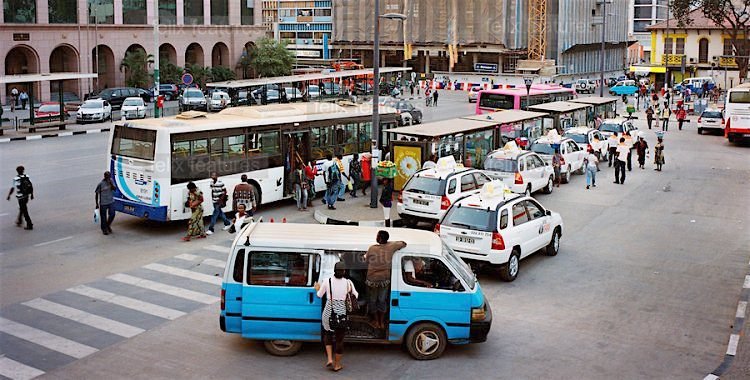Since last week, public transport prices in Luanda have increased, rising to 150 kwanzas for buses, an increase of 200 percent compared to the previous price, and 200 kwanzas for private taxis, known as “blue and white”, which increased by 33 percent compared to the old tariff.
The increases are contested by students and citizens who echoed their discontent in Lusa, with some asking for divine intervention to “enlighten” political decision-makers, leading them to back down in a measure that “penalizes citizens more, especially those with low income. income”, already faced with a difficult socioeconomic situation.
In Largo das Escolas, one of the largest public bus terminals in the capital, António Nunes, 43 years old, an electrician, contested the new transport tariff, particularly for buses.
“These prices are negative for me, I didn’t like it, I had to continue at 50 kwanzas, because the bus is public transport”, he said, expressing “tiredness and annoyance” with the country’s situation, while walking to save the kwanzas he brought with him. pocket.
“It's only God, the President [of the Republic] that we have is only God, that's what is causing [among young people] a lot of robberies in the country”, reported the electrician, who has been surviving on odd jobs for three months due to lack of employment, stating that he previously spent 3000 kwanzas per month on public transport and is unable to triple his expenses.
The calmer environment, with more buses and fewer passengers, seen at Largo das Escolas and other public transport terminals, contrasts with the great floods and endless queues of the past, seeming to confirm the “escape” from the new fare.
“Actually, it’s really difficult and today we prefer to walk a long distance just to save the 150 kwanzas and then take transport home later on”, said student José Macaya, considering the climb “shameful”. of the taxi.
Without the student's social pass, a measure applied by the authorities and which allows 60 free trips from school to home and vice versa, Deodato Pedro said that his school was not registered for the insertion of the “Gira Mais” pass, regretting the current prices of transport.
“The price itself is bad, they shouldn't have done that, what they did is not the right thing. Knowing that the country is already in a very difficult phase, raising taxi prices further is complicated”, said the 10th grade student, upon leaving a physical education class.
Student at Escola Juventude in Luanda António Silva, 21 years old, said that many students are missing classes because they do not have the resources to support the new public transport prices, citing examples of colleagues who live in Viana.
“In the past, they only spent 100 kwanzas round trip [to Largo das Escolas, 18 kilometers] and now they have no way and there are times when they don’t come to school and miss classes”, he lamented.
Dressed in a white coat and with an umbrella to protect herself from the sun's rays, Marta Pedro, 17 years old, a student at the Ngola Kiluanje School, said she was waiting for her student pass, saying that the new taxi fare "complicated" the lives of students and workers.
“The situation is very difficult, I don’t have a pass, but the process is ongoing”, said the 11th grade student, stating that it is the school that will handle the document.
The country's situation “is no longer good and they [the authorities] simply came to disrupt what was already bad, transport went up, which is bad”, said Eugénia Morais, 18 years old, also studying at Ngola Kiluanje, expressing - if “disgusted” with the measure.







